Sunday, December 25th 2011
Christmas Special: The PC Technology of 2011
Welcome to the TechPowerUp 2011 PC technology Christmas special. We hope that you will enjoy reading it while tucking into your turkey, Christmas presents and a little too much wine... In this article, we go through the technology of 2011 that has had the most significance, the most impact and was generally the most talked about. It's not necessarily the best tech of 2011 which is the most significant though, since lemons can be just as significant as the ground-breakers in how they fail to deliver - and the backlash that goes with it.
January: Intel Sandy Bridge i5 & i7
Released on January 9th, the new Intel Core i5 & i7 processors were based on Intel's second generation Core architecture built on a 32 nm production process (HEXUS review). They included an IGP (Integrated Graphics Processor) physically on the same piece of silicon along with HyperThreading. These new dual and quad core processors soundly beat all previous generations of Intel processors in terms of processing performance, heat, power use, features and left AMD in the dust. Therefore, Intel badly needed some competition from AMD and unless you have been living under a rock, you will know how that turned out in October with the launch of Bulldozer. Sandy Bridge was a sound win and is generally considered to be the only architecture worth considering at this point. The i5-2500K is currently at the sweet spot of price/performance. It comes at a stock speed of 3.3 GHz, but typically overclocks to an amazing 4.5 - 5 GHz with a decent air cooler and without too much difficulty in getting there. Models in the budget i3 range were released at various times later. See this Wikipedia article for details.Note that the initial version of the Sandy Bridge p67 chipset had a hardware bug in it, which slowly caused the SATA ports to fail, permanently. The B3 revision cured this completely and Intel's no-hassle motherboard exchange program went a long way towards keeping customers happy.
Now, it's only appropriate that an entry for SB be accompanied by its big brother, SB-E. The Sandy Bridge design extends to 8 cores. However, mainstream Sandy Bridge CPU's fit on an LGA 1155 socket, which can only accommodate 4 cores, due to insufficient bandwidth. On November 14th, Intel released the full 8 core version (not quite) on the LGA 2011 socket, with twice the bandwidth and called it Sandy Bridge-Extreme (SB-E). However, this has had a lukewarm reception, mainly because while 8 cores are present, 2 cores are disabled on current models to keep heat and power use down, VT-d is broken and single threading performance is identical to the standard SB CPU's (HEXUS review). However, the platform is very expensive in dollar terms, so isn't particularly attractive unless one really needs the two extra cores. Note that a C2 stepping is due to be released soon, which fixes the VT-d bug and enables the missing cores, delivering a full 8 core HT-enabled CPU (16 threads) - so, will the early adopters get a rebate on the new chips? Keep in mind however, that the revised Ivy Bridge architecture is due to arrive on LGA 1155 in April, featuring faster single core performance, a much faster, DX11 enabled IGP and an improved 22 nm process technology introducing Intel's Tri-Gate technology for increased efficiency. These are quad core, HT enabled CPU's and it looks like they will extend to 10+ cores over time.
February: IBM's Watson supercomputer wins Jeopardy contest
To quote ourselves from December 12th:
Whether you love Apple products or not, they have made a big impact on today's computing world and none more so than the 'i' branded ones. On March 11th, Apple released the iPad 2, the new improved version of the original iPad launched in April 2010. iPad 2 improvements over the original include a 1 GHz dual core ARM CPU; massively increased graphics performance, about 9 times, front and rear cameras; 33% slimmer at 8.8 mm thick; 15% lighter at 601 g; Airplay - wireless streaming audio, photos, video and video mirroring - allows extension or HDTV video projector. Like its predecessor, it has gone on to sell in the millions, although it doesn't appear to have been the runaway success that Apple had expected.April: Portal 2
Well, what could be finer than a new Valve game? Since the original Half-Life in 1998, every single one has been a masterpiece of technical excellence, storytelling and gameplay. In the original Portal, the gamer plays Chell, a woman trapped in the huge hellish Aperture Laboratories complex, being forced to solve increasingly fiendish puzzles, armed only with her trusty portal gun, which can be fired at surfaces to make portals between them. Using these, she must solve the puzzles "tests" set by the evil artificial intelligence called GLaDOS, which runs the place, to stay alive and make it through to the end.
Portal 2, released April 19th, continues the same theme, but here we see Chell and GLaDOS forced into an awkward partnership to stop Wheatley before his incompetence destroys the complex. The graphics have been improved, with dollops of extra humour and satire (especially from the incompetent, maniacal Wheatley) and increases the length of play and unexpected twists in the game. Plus, gamers were recently treated to free downloadable content. On top of all this, it's very reasonably priced. Another winner.May: LucidLogix Virtu graphics bridge
Bit of an unsung hero, this one. Introduced in a press release promoting its use on Asus motherboards, on May 2nd, this technology allows the Sandy Bridge IGP to be used while a graphics card is plugged into the motherboard. This allows the power efficiency of the IGP to be realized while in 2D mode, but lets the powerful graphics card kick in when high powered 3D graphics are required, usually in 3D games. Virtu comes with Z68 motherboards.June: Duke Nukem Forever
A massive 14 years in the making Duke Nukem Forever was finally released on June 9th amid high expectations for this game, given the success of it's 1990's predecessors, Duke Nukem, Dukem Nukem 2 and Duke Nukem 3D. However, it disappointed most people, while gaining a few loyal followers, including this writer (sorry) so it fits firmly in the turkey category. The sort of things reviewers didn't like were the overall level designs, overly long loading times, bugginess, ridiculous two weapon limit (me too) and the crude, totally un-politically correct humour which some people really loved. Criticisms of its humour refer to things such as cheap sexist and sexualised depiction of women and dated humour and pop culture references due to its excruciatingly long development time. A whole raft of reviews can be found at metacritic.com with an average rating of an awful 54%. However, PC Games (Russia) surprisingly gave the highest 85% (excellent) rating. Well, it's good to know somebody likes it other than me.
Surprisingly, despite such generally negative reviews and forum comments (threads went all the way around the block and back) around the internet panning DNF, it's not a complete commercial flop and has since received two DLC (DownLoadable Content) packs: Hail to the Icons Parody Pack and The Doctor Who Cloned Me. Along with its low Metacritic average, the game enjoys a bargain basement price and has since had several significant bug fixes applied. Also, that annoying 2 weapon limit has been raised to a slightly less annoying 4 weapon limit. The full history of DNF is available on trusty Wikipedia.July: Thailand floods - HDD supply adversely affected
On July 31st, a dreadful tragedy struck Thailand. It was the monsoon season and the rains were so heavy, that huge swathes of land were flooded, killing hundreds and causing much human misery. Incredibly, in late December, the floods are still ongoing and the waters are receding very slowly indeed. It also happens that many hard disk drives are made in Thailand, particularly by Western Digital, which had many of its factories flooded and therefore shut down. This has severely reduced the global manufacturing capacity for HDD's, while demand has not abated. This has lead the supply and demand equation to force HDD prices up - and by a huge margin. Prices have typically surged to between 2 and 3 times their usual levels and have stayed there. More on the flooding at Wikipedia.August: CD copying now legal in the UK
Hands up if you're a UK resident and didn't rip a CD to your computer, because you knew it was morally wrong, illegal and you might get prosecuted for it? No? Well, technically you could have been nailed, due to the UK's ridiculous antiquated copyright laws. However, no one ever was. On August 3rd, Secretary of State, Vince Cable announced a change to the UK's copyright laws following the Hargreaves report to allow copying "ripping" of copyrighted pressed music CD's for personal use. Cable said that implementing the recommendations for fair usage for consumers outlined in the Hargreaves report "was in line with common sense".September: Windows 8 developer preview
On September 13th, Microsoft released a preview version of Windows 8 as a downloadable ISO for anyone to try out. It included two major new features over Windows 7: the Metro user interface and secure boot, both of which have been controversial, here and here. With Metro, is looks like Microsoft is trying to unify the interface between small portable devices like smartphones and tablet computers and desktop PCs, while with secure boot, it's trying to make the operating system secure against malware that can get in at the lowest level of the operating system, making it almost impossible to remove. It also has the (un?)intended side effect of potentially locking out competing operating systems, such as Linux.
Those that have tried Windows 8, have found it to be faster than Windows 7 and have a smaller memory footprint, which are very good points in its favour. It has been stable, too. The new Metro interface, which essentially replaces the Start button, has received a very mixed response though, as it appears to be much more limiting than the standard Windows desktop. The developer preview version could have the Windows 7 Start menu restored with a registry hack, banishing the Metro UI. It's not clear whether the production version of Windows 8 - which is likely to have a different name - will be able to work in a fully "legacy" mode like this.
It's also the first Windows operating system to be released natively on the ARM series of CPU's, which should shake up the processor market in the long run. Note that the ARM version won't be able to run any x86 apps or drivers, due to the radically different processor architectures.October: death of Steve Jobs
This entry isn't about success or failure, but about someone that the world has lost: Steve Jobs. Like him or hate him, one can't deny that he had a huge influence on the world's computing scene. Jobs achieved so much, that it's impossible to describe his life's work in a short entry like this, so we won't try. In 1976 he co-founded Apple with Steve Wozniak and Ronald Wayne (who?) and the world was never quite the same again.
Recent successes over the last decade or so have involved everything 'i' - the iMac, iPod, iPhone and the iPad. All of which have been phenomenal successes, having significantly influenced the product portfolios of other companies to compete with them. The iPad in particular, received quite poor reviews before it was released on the grounds of functionality and compatibility with industry standards such as USB, which it didn't have, but that didn't appear to dent sales one bit. One particular trademark of Jobs, was his "reality distortion" field, which had a way of making customers very loyal to his company, almost worshiping it and its products like a religion. This was particularly obvious at Apple product launches, where Jobs would whip the crowd up into an excited frenzy by using the same marketing techniques as are seen at American Christian evangelical sermons. In reality, this "reality distortion field" was nothing more than unique and very clever marketing by Jobs, created by his own personal charisma. It should be noted that many people hated this style of marketing and it actively put them off Apple products. It will be interesting to see how Apple fares without him in the long run.
Jobs insisted on running everything his way and he applied the same logic to his cancer, which was diagnosed in 2003. He initially refused to listen to medical professionals, who advised him to have his cancer operated on. Instead, he lived for nine months on a special "alternative medicine" diet, hoping to cure it that way. He eventually agreed to have conventional therapy after it was clear that this diet wasn't helping at all, but by then the disease had unfortunately taken hold and become terminal. It's believed that if he had taken the proper medical advice early on, he would still be alive today. Head over to Wikipedia for a comprehensive review of his life.
RIP Steve Jobs February 24th, 1955 - October 5th, 2011 (aged 56).October: AMD Bulldozer psuedo "8 core" CPU FX-8150
Four long years in the making, high hopes were expected from AMD's new CPU (X-bit labs review, TPU news) based on their brand new "Bulldozer" architecture and 32 nm process technology, it was released on October 12th. Unfortunately, it wasn't to be. Not only is it not a true 8 core CPU, since it has four modules each with two "cores" sharing significant resources (a form of HyperThreading on steroids) but it fails to beat even the cheaper and decidedly mid-range Intel i5-2500 Sandy Bridge CPU in most benchmarks. Oh and Bulldozer doesn't have an IGP either, unlike the Sandy Bridge range. Every review going gave it a thumbs down and the forum threads around the internet discussing this lemon are legion. In particular, it's worth quoting the very last sentence from the review by bit-tech: "Turns out we were right: the FX-8150 is a stinker." Ouch. The best thing going for this processor is its unlocked multiplier and excellent overclockability - records have been set due to this and is a fair win for the product, if niche in scope. 6 core and 4 core variants are also on sale.
Finally, there is a Windows scheduling patch that Microsoft is working on, but one shouldn't hold their breath for anything more than modest performance improvements.November: Call of Duty: Modern Warfare 3 & Battlefield 3 (October)
Activision's Call of Duty series tends to evoke a lot of comments of same old gameplay and graphics rehashed, as players find each revision plays just about the same as the previous ones and just seem to have a few variables changed to make a "new" game. Despite this, it hasn't stopped MW3 outselling all other games put together by a country mile and even outsold all of Hollywood in revenue! Released on November 8th, MW3 set the record for the biggest entertainment launch in history with a sell-through of $400 million in the first 24 hours of sales. It then went on hit a gargantuan $1 Billion in sales in a mere 16 days. Truly amazing. This game must have some secret sauce to achieve such recession-busting sales. However, no entry for MW3 would be complete without a mention of Electronic Art's Battlefield 3, released just a couple of weeks earlier, on October 25th. While BF3 sales figures are completely dwarfed by MW3 it's still EA's biggest hit and is generally considered to be a superior game in terms of gameplay and graphics quality. While the games are substantially different in gameplay terms, they are both first person shooters in a war setting, which always invites comparisons between the two, with fans on one side or the other nerd raging on forums everywhere.November: The Elder Scrolls V: Skyrim
Released on November 11th, this is the latest instalment in the Elder Scrolls saga, which is set in medieval times. Garnering a superb 94% Metacritic rating for the PC version it has a way of hooking gamers into extended play sessions which some consider obsessional. It achieves this by having a large world with non-linear gameplay and involving many quests and side quests, along with a compelling storyline. The storyline changes dynamically according to the actions of the player, leading to a huge variety of possible objectives and player companions.
Also, this is the game that coined the humorous phrase "I used to be an adventurer like you, then I took an arrow in the knee", as this is often stated as the excuse by various non-player characters (NPCs) throughout the game for why they can't adventure like you do. Hey, let's face it, they're just not as cool as you are... This YouTube video demonstrates the "arrow in the knee" phenomenon:
Skyrim: a definite hit, no question.
December: AMD Radeon HD 7970 3 GB
Released on November 9th, 2010, NVIDIA's GeForce GTX 580 1.5 GB (TPU review) has remained the undisputed king of single GPU graphics cards for well over a year. Finally, NVIDIA's best has been dethroned by its arch enemy, AMD on December 21st (TPU review) in the form of the HD 7970 3GB - but only just. Seeing as the GTX 580 is based on 40 nm technology and the HD 7970 on advanced 28 nm technology and AMD's new "Southern Islands" architecture, it was expected to beat the GTX 580's performance by a large margin. However, this has not happened. The HD 7970 only wins by around 5-15% depending on the benchmark - not really much, considering the more advanced process technology and the length of time taken to finally release the card. It's certainly not worth upgrading a GTX 580 for the small gain in performance and the loss of 3D Vision, if one used it. To compound this, it has an overly noisy cooler and only physically goes on sale this January. So, while by no means a fail like Bulldozer, it's only a modest win at best, but does at least give NVIDIA some decent competition at the high end, which will lower the prices of both cards. Also, it overclocks very well indeed, which will be a boon to overclockers everywhere who want to set benchmark records in overclocking competitions. To meet customer's performance expectations, NVIDIA's upcoming Kepler-based cards released in the next few months, should therefore beat the HD 7970 by a significant margin.
UPDATE January 1st, 2012: These cards overclock like a monster! See HD 7970 Overclocked to 1.26 GHz: 28 nm Tech Really Stretches Its Legs for early results - they go on sale in a few days.
January: Intel Sandy Bridge i5 & i7
Released on January 9th, the new Intel Core i5 & i7 processors were based on Intel's second generation Core architecture built on a 32 nm production process (HEXUS review). They included an IGP (Integrated Graphics Processor) physically on the same piece of silicon along with HyperThreading. These new dual and quad core processors soundly beat all previous generations of Intel processors in terms of processing performance, heat, power use, features and left AMD in the dust. Therefore, Intel badly needed some competition from AMD and unless you have been living under a rock, you will know how that turned out in October with the launch of Bulldozer. Sandy Bridge was a sound win and is generally considered to be the only architecture worth considering at this point. The i5-2500K is currently at the sweet spot of price/performance. It comes at a stock speed of 3.3 GHz, but typically overclocks to an amazing 4.5 - 5 GHz with a decent air cooler and without too much difficulty in getting there. Models in the budget i3 range were released at various times later. See this Wikipedia article for details.Note that the initial version of the Sandy Bridge p67 chipset had a hardware bug in it, which slowly caused the SATA ports to fail, permanently. The B3 revision cured this completely and Intel's no-hassle motherboard exchange program went a long way towards keeping customers happy.
Now, it's only appropriate that an entry for SB be accompanied by its big brother, SB-E. The Sandy Bridge design extends to 8 cores. However, mainstream Sandy Bridge CPU's fit on an LGA 1155 socket, which can only accommodate 4 cores, due to insufficient bandwidth. On November 14th, Intel released the full 8 core version (not quite) on the LGA 2011 socket, with twice the bandwidth and called it Sandy Bridge-Extreme (SB-E). However, this has had a lukewarm reception, mainly because while 8 cores are present, 2 cores are disabled on current models to keep heat and power use down, VT-d is broken and single threading performance is identical to the standard SB CPU's (HEXUS review). However, the platform is very expensive in dollar terms, so isn't particularly attractive unless one really needs the two extra cores. Note that a C2 stepping is due to be released soon, which fixes the VT-d bug and enables the missing cores, delivering a full 8 core HT-enabled CPU (16 threads) - so, will the early adopters get a rebate on the new chips? Keep in mind however, that the revised Ivy Bridge architecture is due to arrive on LGA 1155 in April, featuring faster single core performance, a much faster, DX11 enabled IGP and an improved 22 nm process technology introducing Intel's Tri-Gate technology for increased efficiency. These are quad core, HT enabled CPU's and it looks like they will extend to 10+ cores over time.
February: IBM's Watson supercomputer wins Jeopardy contest
To quote ourselves from December 12th:
Who hasn't heard of Watson? No, not Sherlock Holmes's sidekick, but the computer built by IBM called Watson in honour of this sidekick. This is the artificial intelligence research project that recently made headlines by making mincemeat of human contestants on popular gameshow Jeopardy. Running on a supercomputer, it comprises of the following major components: speech recognition, natural language processing, machine learning and data mining from a huge database to help it understand natural language and quickly come up with the right answers - and it works incredibly well. Now, IBM is looking to apply this awesome technology to help medical science and beat patent trolls at their own game."Watson originally beat the Jeopardy contestants in February, as reported by the Guardian.March: iPad 2
Whether you love Apple products or not, they have made a big impact on today's computing world and none more so than the 'i' branded ones. On March 11th, Apple released the iPad 2, the new improved version of the original iPad launched in April 2010. iPad 2 improvements over the original include a 1 GHz dual core ARM CPU; massively increased graphics performance, about 9 times, front and rear cameras; 33% slimmer at 8.8 mm thick; 15% lighter at 601 g; Airplay - wireless streaming audio, photos, video and video mirroring - allows extension or HDTV video projector. Like its predecessor, it has gone on to sell in the millions, although it doesn't appear to have been the runaway success that Apple had expected.April: Portal 2
Well, what could be finer than a new Valve game? Since the original Half-Life in 1998, every single one has been a masterpiece of technical excellence, storytelling and gameplay. In the original Portal, the gamer plays Chell, a woman trapped in the huge hellish Aperture Laboratories complex, being forced to solve increasingly fiendish puzzles, armed only with her trusty portal gun, which can be fired at surfaces to make portals between them. Using these, she must solve the puzzles "tests" set by the evil artificial intelligence called GLaDOS, which runs the place, to stay alive and make it through to the end.
Portal 2, released April 19th, continues the same theme, but here we see Chell and GLaDOS forced into an awkward partnership to stop Wheatley before his incompetence destroys the complex. The graphics have been improved, with dollops of extra humour and satire (especially from the incompetent, maniacal Wheatley) and increases the length of play and unexpected twists in the game. Plus, gamers were recently treated to free downloadable content. On top of all this, it's very reasonably priced. Another winner.May: LucidLogix Virtu graphics bridge
Bit of an unsung hero, this one. Introduced in a press release promoting its use on Asus motherboards, on May 2nd, this technology allows the Sandy Bridge IGP to be used while a graphics card is plugged into the motherboard. This allows the power efficiency of the IGP to be realized while in 2D mode, but lets the powerful graphics card kick in when high powered 3D graphics are required, usually in 3D games. Virtu comes with Z68 motherboards.June: Duke Nukem Forever
A massive 14 years in the making Duke Nukem Forever was finally released on June 9th amid high expectations for this game, given the success of it's 1990's predecessors, Duke Nukem, Dukem Nukem 2 and Duke Nukem 3D. However, it disappointed most people, while gaining a few loyal followers, including this writer (sorry) so it fits firmly in the turkey category. The sort of things reviewers didn't like were the overall level designs, overly long loading times, bugginess, ridiculous two weapon limit (me too) and the crude, totally un-politically correct humour which some people really loved. Criticisms of its humour refer to things such as cheap sexist and sexualised depiction of women and dated humour and pop culture references due to its excruciatingly long development time. A whole raft of reviews can be found at metacritic.com with an average rating of an awful 54%. However, PC Games (Russia) surprisingly gave the highest 85% (excellent) rating. Well, it's good to know somebody likes it other than me.
Surprisingly, despite such generally negative reviews and forum comments (threads went all the way around the block and back) around the internet panning DNF, it's not a complete commercial flop and has since received two DLC (DownLoadable Content) packs: Hail to the Icons Parody Pack and The Doctor Who Cloned Me. Along with its low Metacritic average, the game enjoys a bargain basement price and has since had several significant bug fixes applied. Also, that annoying 2 weapon limit has been raised to a slightly less annoying 4 weapon limit. The full history of DNF is available on trusty Wikipedia.July: Thailand floods - HDD supply adversely affected
On July 31st, a dreadful tragedy struck Thailand. It was the monsoon season and the rains were so heavy, that huge swathes of land were flooded, killing hundreds and causing much human misery. Incredibly, in late December, the floods are still ongoing and the waters are receding very slowly indeed. It also happens that many hard disk drives are made in Thailand, particularly by Western Digital, which had many of its factories flooded and therefore shut down. This has severely reduced the global manufacturing capacity for HDD's, while demand has not abated. This has lead the supply and demand equation to force HDD prices up - and by a huge margin. Prices have typically surged to between 2 and 3 times their usual levels and have stayed there. More on the flooding at Wikipedia.August: CD copying now legal in the UK
Hands up if you're a UK resident and didn't rip a CD to your computer, because you knew it was morally wrong, illegal and you might get prosecuted for it? No? Well, technically you could have been nailed, due to the UK's ridiculous antiquated copyright laws. However, no one ever was. On August 3rd, Secretary of State, Vince Cable announced a change to the UK's copyright laws following the Hargreaves report to allow copying "ripping" of copyrighted pressed music CD's for personal use. Cable said that implementing the recommendations for fair usage for consumers outlined in the Hargreaves report "was in line with common sense".September: Windows 8 developer preview
On September 13th, Microsoft released a preview version of Windows 8 as a downloadable ISO for anyone to try out. It included two major new features over Windows 7: the Metro user interface and secure boot, both of which have been controversial, here and here. With Metro, is looks like Microsoft is trying to unify the interface between small portable devices like smartphones and tablet computers and desktop PCs, while with secure boot, it's trying to make the operating system secure against malware that can get in at the lowest level of the operating system, making it almost impossible to remove. It also has the (un?)intended side effect of potentially locking out competing operating systems, such as Linux.
Those that have tried Windows 8, have found it to be faster than Windows 7 and have a smaller memory footprint, which are very good points in its favour. It has been stable, too. The new Metro interface, which essentially replaces the Start button, has received a very mixed response though, as it appears to be much more limiting than the standard Windows desktop. The developer preview version could have the Windows 7 Start menu restored with a registry hack, banishing the Metro UI. It's not clear whether the production version of Windows 8 - which is likely to have a different name - will be able to work in a fully "legacy" mode like this.
It's also the first Windows operating system to be released natively on the ARM series of CPU's, which should shake up the processor market in the long run. Note that the ARM version won't be able to run any x86 apps or drivers, due to the radically different processor architectures.October: death of Steve Jobs
This entry isn't about success or failure, but about someone that the world has lost: Steve Jobs. Like him or hate him, one can't deny that he had a huge influence on the world's computing scene. Jobs achieved so much, that it's impossible to describe his life's work in a short entry like this, so we won't try. In 1976 he co-founded Apple with Steve Wozniak and Ronald Wayne (who?) and the world was never quite the same again.
Recent successes over the last decade or so have involved everything 'i' - the iMac, iPod, iPhone and the iPad. All of which have been phenomenal successes, having significantly influenced the product portfolios of other companies to compete with them. The iPad in particular, received quite poor reviews before it was released on the grounds of functionality and compatibility with industry standards such as USB, which it didn't have, but that didn't appear to dent sales one bit. One particular trademark of Jobs, was his "reality distortion" field, which had a way of making customers very loyal to his company, almost worshiping it and its products like a religion. This was particularly obvious at Apple product launches, where Jobs would whip the crowd up into an excited frenzy by using the same marketing techniques as are seen at American Christian evangelical sermons. In reality, this "reality distortion field" was nothing more than unique and very clever marketing by Jobs, created by his own personal charisma. It should be noted that many people hated this style of marketing and it actively put them off Apple products. It will be interesting to see how Apple fares without him in the long run.
Jobs insisted on running everything his way and he applied the same logic to his cancer, which was diagnosed in 2003. He initially refused to listen to medical professionals, who advised him to have his cancer operated on. Instead, he lived for nine months on a special "alternative medicine" diet, hoping to cure it that way. He eventually agreed to have conventional therapy after it was clear that this diet wasn't helping at all, but by then the disease had unfortunately taken hold and become terminal. It's believed that if he had taken the proper medical advice early on, he would still be alive today. Head over to Wikipedia for a comprehensive review of his life.
RIP Steve Jobs February 24th, 1955 - October 5th, 2011 (aged 56).October: AMD Bulldozer psuedo "8 core" CPU FX-8150
Four long years in the making, high hopes were expected from AMD's new CPU (X-bit labs review, TPU news) based on their brand new "Bulldozer" architecture and 32 nm process technology, it was released on October 12th. Unfortunately, it wasn't to be. Not only is it not a true 8 core CPU, since it has four modules each with two "cores" sharing significant resources (a form of HyperThreading on steroids) but it fails to beat even the cheaper and decidedly mid-range Intel i5-2500 Sandy Bridge CPU in most benchmarks. Oh and Bulldozer doesn't have an IGP either, unlike the Sandy Bridge range. Every review going gave it a thumbs down and the forum threads around the internet discussing this lemon are legion. In particular, it's worth quoting the very last sentence from the review by bit-tech: "Turns out we were right: the FX-8150 is a stinker." Ouch. The best thing going for this processor is its unlocked multiplier and excellent overclockability - records have been set due to this and is a fair win for the product, if niche in scope. 6 core and 4 core variants are also on sale.
Finally, there is a Windows scheduling patch that Microsoft is working on, but one shouldn't hold their breath for anything more than modest performance improvements.November: Call of Duty: Modern Warfare 3 & Battlefield 3 (October)
Activision's Call of Duty series tends to evoke a lot of comments of same old gameplay and graphics rehashed, as players find each revision plays just about the same as the previous ones and just seem to have a few variables changed to make a "new" game. Despite this, it hasn't stopped MW3 outselling all other games put together by a country mile and even outsold all of Hollywood in revenue! Released on November 8th, MW3 set the record for the biggest entertainment launch in history with a sell-through of $400 million in the first 24 hours of sales. It then went on hit a gargantuan $1 Billion in sales in a mere 16 days. Truly amazing. This game must have some secret sauce to achieve such recession-busting sales. However, no entry for MW3 would be complete without a mention of Electronic Art's Battlefield 3, released just a couple of weeks earlier, on October 25th. While BF3 sales figures are completely dwarfed by MW3 it's still EA's biggest hit and is generally considered to be a superior game in terms of gameplay and graphics quality. While the games are substantially different in gameplay terms, they are both first person shooters in a war setting, which always invites comparisons between the two, with fans on one side or the other nerd raging on forums everywhere.November: The Elder Scrolls V: Skyrim
Released on November 11th, this is the latest instalment in the Elder Scrolls saga, which is set in medieval times. Garnering a superb 94% Metacritic rating for the PC version it has a way of hooking gamers into extended play sessions which some consider obsessional. It achieves this by having a large world with non-linear gameplay and involving many quests and side quests, along with a compelling storyline. The storyline changes dynamically according to the actions of the player, leading to a huge variety of possible objectives and player companions.
Also, this is the game that coined the humorous phrase "I used to be an adventurer like you, then I took an arrow in the knee", as this is often stated as the excuse by various non-player characters (NPCs) throughout the game for why they can't adventure like you do. Hey, let's face it, they're just not as cool as you are... This YouTube video demonstrates the "arrow in the knee" phenomenon:
Skyrim: a definite hit, no question.
December: AMD Radeon HD 7970 3 GB
Released on November 9th, 2010, NVIDIA's GeForce GTX 580 1.5 GB (TPU review) has remained the undisputed king of single GPU graphics cards for well over a year. Finally, NVIDIA's best has been dethroned by its arch enemy, AMD on December 21st (TPU review) in the form of the HD 7970 3GB - but only just. Seeing as the GTX 580 is based on 40 nm technology and the HD 7970 on advanced 28 nm technology and AMD's new "Southern Islands" architecture, it was expected to beat the GTX 580's performance by a large margin. However, this has not happened. The HD 7970 only wins by around 5-15% depending on the benchmark - not really much, considering the more advanced process technology and the length of time taken to finally release the card. It's certainly not worth upgrading a GTX 580 for the small gain in performance and the loss of 3D Vision, if one used it. To compound this, it has an overly noisy cooler and only physically goes on sale this January. So, while by no means a fail like Bulldozer, it's only a modest win at best, but does at least give NVIDIA some decent competition at the high end, which will lower the prices of both cards. Also, it overclocks very well indeed, which will be a boon to overclockers everywhere who want to set benchmark records in overclocking competitions. To meet customer's performance expectations, NVIDIA's upcoming Kepler-based cards released in the next few months, should therefore beat the HD 7970 by a significant margin.
UPDATE January 1st, 2012: These cards overclock like a monster! See HD 7970 Overclocked to 1.26 GHz: 28 nm Tech Really Stretches Its Legs for early results - they go on sale in a few days.
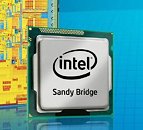
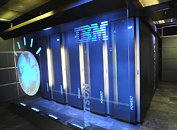


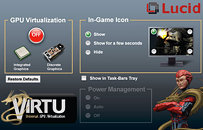
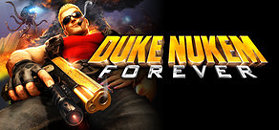


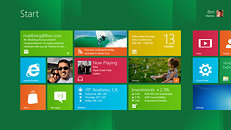
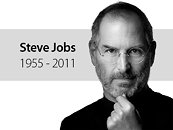
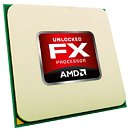


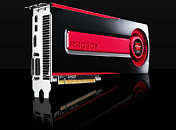
38 Comments on Christmas Special: The PC Technology of 2011
I highly doubt it as well. in tech, we have hyped performance and then we have realistic performance. this isnt the latter
Merry Christmas everyone! :toast:
Looking at the nvidia side for a moment, from memory, their new generation single GPU cards performed roughly the same as their previous dual GPU cards, so we had:
9800 GX2 > GTX 280
GTX 295 > GTX 580
I can't remember any other generation transitions off the top of my head, sorry.
Similarly, we should be seeing AMD doing the same, so the 7970 should be as fast as a 6990, more or less. However, it's actually much slower, which is bad and crucially, doesn't give GTX 580 owners an incentive to upgrade their cards.
I reckon there's two reasons we're seeing this decline in generational performance gains:
- The power budget. Cards have to fit within a certain form factor and power envelope, which restricts how fast they (both NVIDIA and AMD) can make their GPU's. Think about it, if these constraints weren't there, then doubling performance would be as simple as doubling the width of the GPU, no new architecture needed
- Console f* ports. Modern games as a whole do not push the performance envelope due to this blight, so PC performance is now held back until consoles catch up in performance. What a sucky situation :rolleyes:
Other than that spot on.
That statement was shocking to me.
why? 7970 beats the previously generation 6970 by around 30-40%, so going by that, kepler vs 580 will be around 30-40%
and 7970 uses a new architecture so expect some extra (5-10%) performance in optimized drivers, same goes for kepler
First off, I'm really glad that you people liked the article, it was a last minute idea and it took quite some time and effort to write, so I'm really glad it paid off. :toast::respect:
I think people may be misunderstanding my point about the generational gain and I think (hope) my explanation to nt300 clarifies it nicely:Making the xmas editorial controversial is the last thing I wanna do - I just wanted a nice easy and pleasant read for xmas for everybody. Shall I just take out this sentence then? "To meet customer's performance expectations, NVIDIA's upcoming Kepler-based cards released in the next few months, should therefore beat the HD 7970 by 50-80%."
I'm perfectly happy to if you guys think it'll be better without it. :toast: